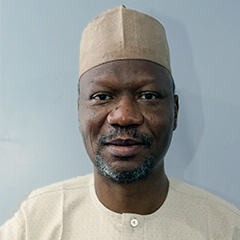By Blessing Odega/Emmanuel Antswen/Martins Abochol
The Plateau government says it is one of the two states in Nigeria that has eliminated Onchocerciasis, known as River Blindness and Lymphatic Filariasis, also known as Elephantiasis.
The News Agency of Nigeria (NAN), reports that River Blindness and Elephantiasis, are among the Neglected Tropical Diseases (NTDs).
NAN also reports that NTDs are diseases that occur under conditions of poverty, and are concentrated almost exclusively in impoverished populations.
The Plateau NTDs Coordinator, Philemon Dagwa, told NAN in an interview that Plateau and Nasarawa were the only states in the country that had eliminated the two diseases.
Dagwa, said that Plateau, through the intervention of partners such as the Cater Center for Nigeria, via its Integrated Health Programmes, had achieved great milestones in the elimination and control of NTDs in the state.
According to him also, Trachoma (contagious bacterial eye infection) is no longer a public health issue in Plateau since 2014, and Mass Drug Administration (MDA), has stopped.
Similarly, he said Soil Transmitted Helminthiasis (parasitic worms) infection in the state had drastically reduced, as only ward treatment were still ongoing in 15 local government areas (LGAs), while treatment had stopped completely in two others.
Dagwa, said though NTDs were major health threats, Plateau was however, at a high alert to forestall their outbreaks, as well as other communicable diseases.
“The state has a surveillance team in place in all the 17 LGAs.
“The surveillance Notification Officers in all the LGAs keep surveillance and report swiftly any suspected case to the state epidemiologist,” he said.
Similarly, Mr Bulus Mancha, the Programme Officer, Plateau and Nasarawa states Integrated Health Programmes for Carter Center, Nigeria, said that the center started the Onchocerciasis programme in the two states in 1992.
Mancha said by 2017, the center had interrupted its transmission and by 2021, eliminated its transmission.
“This is a milestone in the sense that Plateau and Nasarawa are the only states that have eliminated Onchocerciasis.
“They are also the only states that have eliminated Lymphatic Filariasis,” he stated.
“We have surveillance in place to mitigate any outbreak of NTDs, such as the Lymphatic Filariasis Post Treatment Surveillance (PTS), the Onchocerciasis Post Elimination Surveillance (PES),’’ he added.
NAN reports that Nigeria was certified free of Guinea worm in 2013, by the World Health Organisation (WHO), which was an endemic NTD in Nigeria.
In a related development, the Benue State Government says more than 1,400 persons have received free surgeries and medical services through its NTDs Elimination Programme.
The State Coordinator of the Programme, Mr Terhemba Debam, told NAN in Makurdi, that the state was contending with five NTDs.
Debam said more than 700 persons benefited from free hydrocele surgeries while over 400 received free lymphoedema (localised swelling of the body) management, to prevent disabilities.
He further said the state was tackling onchocerciasis (parasitic tropical eye and skin disease), filariasis in 23 LGAs and parasitic or intestinal worms in 18 others.
He also said urogenital schistosomiasis (infection of the bladder),which causes blood to come out of the genitals when passing urine, was prevalent in 22 LGAs, while trachoma was discovered in three LGAs.
The coordinator however, said the state had reached its elimination threshold of trachoma.
According to him, Benue has domesticated the WHO’s road map on NTDs, as adopted by the Federal Government, and the state’s main goal is to eliminate the diseases by 2030.
“Benue State has set up a programme called Neglected Tropical Diseases Elimination Programme, and we are using the five strategies recommended by the WHO.
“We use the preventive therapy, intensified or case management strategy, integrated vector control, veterinary public strategy and water, sanitation and hygiene strategy.”
Debam said clean water, sanitary food handling, and good hygiene could prevent diseases such as guinea-worm, soil-transmitted helminthiasis, and trachoma.
He said water, sanitation and hygiene had the potential to impact positively on several NTDs, stressing that it could reduce more than 70 per cent of trachoma cases.
He said when they started the programme, Benue was coded-red, but at the moment, with serious work ongoing, the state was now coded-termed, meaning transmission had been interrupted.
Also the Acting Executive Secretary, State Emergency Management Agency SEMA Mr James Iorpuu, told NAN that cases of NTDs were recorded at the Internally Displaced Persons (IDPs) camps.
Iorpuu, however, said the state was on top of the situation.
NAN reports that all efforts to speak to the State Director of Public Health, Dr Igbabul Agela, proved abortive as he was said to be unavailable.
On its part, the Taraba State Government said it was committed to mitigating all NTDs in the state.
Dr Bodia Boma, the state’s Commissioner for Health, who spoke against the backdrop of the 2023 World Hepatitis Day in Jalingo, said that the government had developed capacity amongst health personnel and institutions, to contend with any outbreak and spread of NTDs in the state.
He also said that the acquisition of world class medical equipment to hospitals in the state was another demonstration of the government’s commitment to mitigating the NTDs.
Also, Mrs Becky Uten, Executive Director, Save Nigeria against Hepatitis, an NGO, called on both government and well meaning citizens, to put all hands on deck to mitigate NTDs.
Uten said the organisation had stepped up sensitisation efforts, as part of its strategies in the fight against NTDs prevalence in the state. (NAN)




